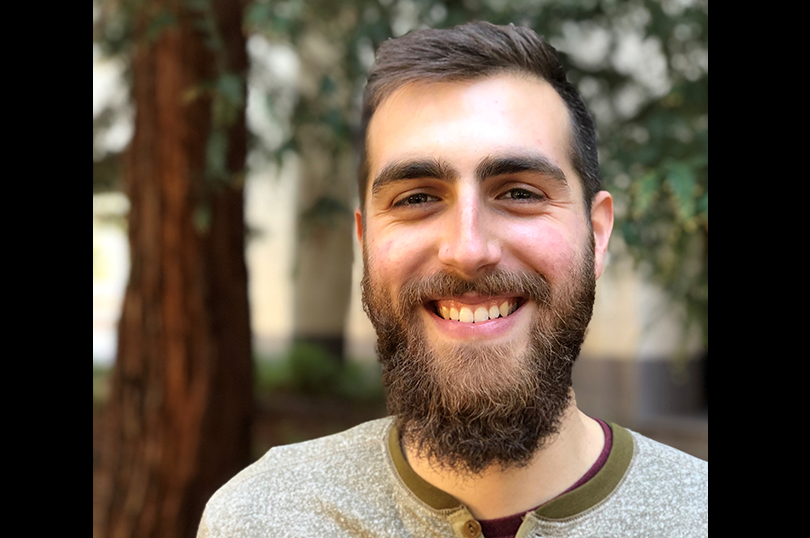Success in a major key

When Joshua Rapp, E14, first looked at Tufts School of Engineering, he was determined to march to the beat of his own drum, knowing his father and grandparents had attended Tufts before him. But when he realized the opportunities that Tufts School of Engineering presented for combining his interest in STEM fields with his passion for music, Tufts quickly rose to the top of his list.
That was especially true after Rapp was connected to Paul Lehrman, senior lecturer in the Tufts Department of Music and co-director of Tufts’ music engineering program. “[Music engineering] could join a career in engineering with the chance to surround myself with music,” Rapp says. “And electrical engineering seemed like the best fit since recording music is all about the software and hardware used to capture and process electrical signals.”
At Tufts, Rapp built a strong foundation in both electrical engineering and music engineering. He recorded performances as technical staff for Tufts Music events, served as a TA in an electrical engineering and music course on recording and production, and used force sensors to convert the hammer hits of an acoustic piano into electronic signals in his Senior Design project.
In classes like Linear Systems, taught by Associate Professor Shuchin Aeron, and Digital Image Processing, taught by Professor and Chair Eric Miller, Rapp honed his knowledge of signal processing and applied it to digital image processing. “[It] was thrilling,” he says. “Even more so than audio, it was so easy to visually see the effects of different algorithms being applied to images.” Rapp spent the summer after his junior year conducting research in the lab of Associate Professor Valencia Koomson, who became the first person to encourage him to consider graduate school.
After graduating from Tufts with a BS in electrical engineering, Rapp went on to a PhD at Boston University, where he studied with Professor Vivek Goyal. “[Professor Goyal] was doing some amazing work in image formation problems – capturing measurements that seemingly contain no information and turning them into remarkably accurate 3D images,” says Rapp. Rapp joined the group as Goyal’s first PhD student at BU and became a Draper Fellow, learning to set up and run the specialized single-photon detection equipment needed to form images.
Rapp’s dissertation ultimately won the 2020 award for outstanding PhD dissertation in electrical engineering from the BU Department of Electrical and Computer Engineering. Also in 2020, a paper Rapp had co-authored with Goyal, published in IEEE Transactions on Computational Imaging, received a Young Author Best Paper Award from the IEEE Signal Processing Society.
Now a postdoctoral researcher in the Computational Imaging Lab at Stanford University, Rapp is studying computer vision and machine learning techniques. While he had initially hoped to learn new optical imaging techniques, COVID-19 safety precautions have caused limited equipment access. Rapp pivoted to working out how to combine “modern deep learning techniques with physics-based modeling of light propagation to do things like see around corners,” he explains. That work tends to be data-driven, meaning he isn’t reliant on equipment that is difficult to access during the pandemic, and Rapp and colleagues recently published a paper in Nature Communications on the use of edge-resolved transient imaging to see around corners.
“It would be hard to list all the ways that my Tufts education prepared me for academia and research,” says Rapp. From the practical theory learned in undergraduate classes to research experiences that taught him to work independently, communicate his work, and how to approach an open-ended problem, the Tufts Department of Electrical and Computer Engineering prepared Rapp for the path ahead.
From his first experience on campus, Tufts’ status as a top-tier research university and engineering school with a strong liberal arts program was essential for Rapp. “I loved that so many of my fellow Jumbos were not at all engineers,” he says. “It was a fantastic way to keep my horizons broad, even while specializing in a technical field.”
Looking ahead to the future, Rapp wants to work in industrial research in the field of signal processing and computational sensing. “I’m hoping to make a career out of research and continue to have the opportunity to publish, follow the latest science, and eventually have my work integrated into real products,” he says.
Department:
Electrical and Computer Engineering